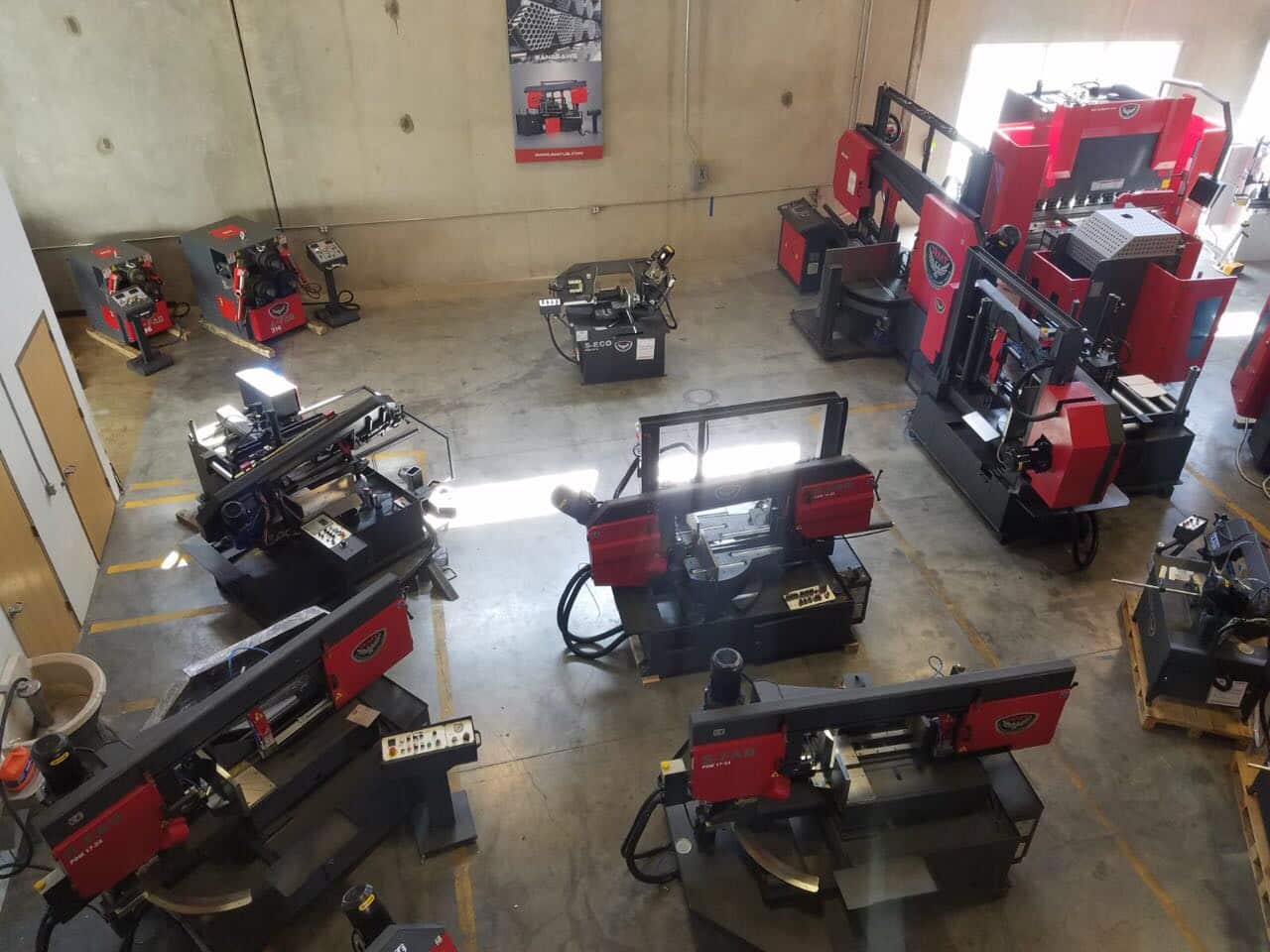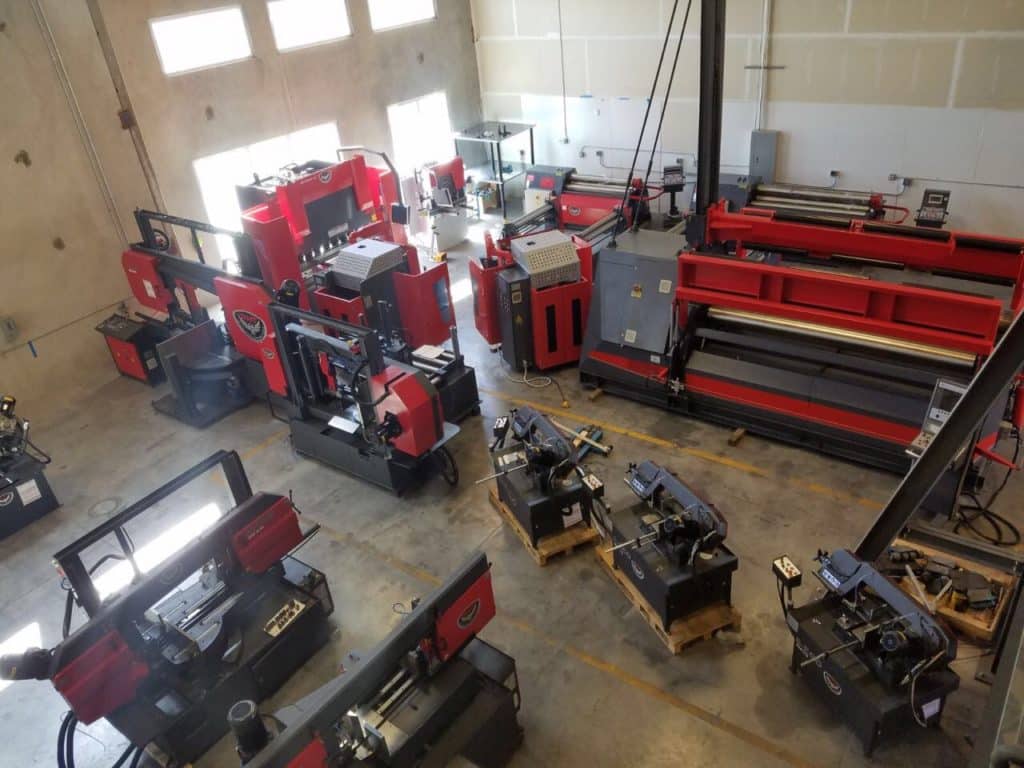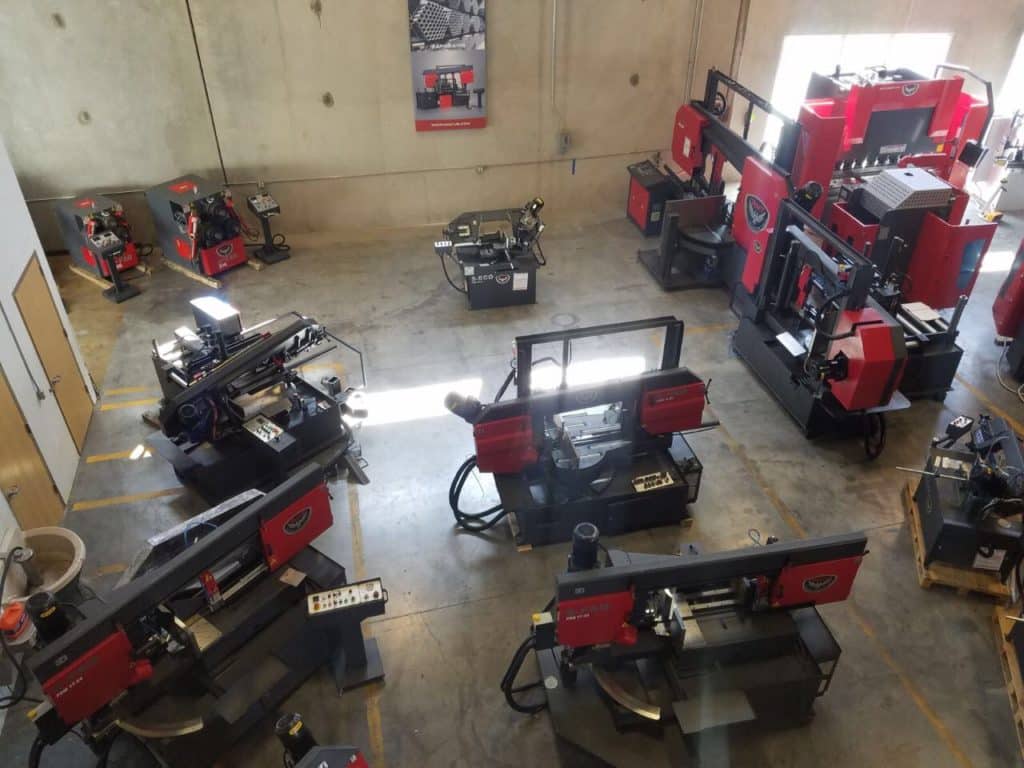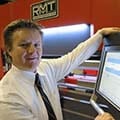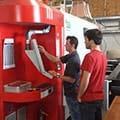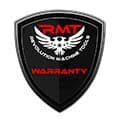Foundational Principles
A metal fabrication business can get started in a number of ways: a fabricator employed at another shop decides to launch off on their own; a home hobbyist realizes he can make money doing work for others; or perhaps an HVAC contractor wants to explore opportunities by working with heavier materials. Sometimes a specialty business—like a welding shop—recognizes the profit potential of performing more services for their customer base. Whatever the reason, if you happen to be a metalworker wanting to set up your own fab shop, it is crucial that you go into it understanding the differences between the machines you need and the machines you want.
Most fabricators can name several contractors or fab shops in their area that have gone under due to not being careful about their spending, so the critical first step in starting out is to establish—and stick to—a realistic budget.
The budget is only part of your overall business plan, however. You need to look at where you want to go with your business and identify what you can offer the industry in your local market. In what ways will you be unique? What competitive advantages can you offer? How many employees will you need? What are your anticipated risks?
Once your plan and budget are in place, you can get down to the work of equipping your fab shop.
Beginner Basics
In working with plate metal and profiles, there are a half-dozen essential machines:
- Press Brake
- Shear
- Plate Roll
- Angle Roll
- Band Saw
- Ironworker
If you are focused on plate fabrication, then your first investments will likely be a brake and a shear, adding a plate roll when needed.
If you are doing ornamental iron work or other fabrication of profile metal, then you’ll probably want to start with a bandsaw, an ironworker and an angle roll.
Most fabricators will work in both areas, so it’s a matter of buying what you really need in order to start off while farming out the rest of your work to other fab shops until you can acquire the equipment to do everything inhouse.
Expand as You Can Afford
While it’s great to dream about having all the nice “toys,” realistically you have to wait to buy them until you can conveniently afford them. Still, if your heart is set on getting your own fiber laser even though you don’t really need one, why not consider starting with a small model that is a fraction of the size and a third of the cost of the standard ones? Then just save a little discretionary money each month until you can buy it, allowing you to enjoy creating smaller projects with it for customers while building your skills as well as your bank account in anticipation of the day when you can purchase a more powerful model with a full-size table.
There’s nothing wrong with having a want and going after it, as long as you recognize that it definitely isn’t a need, and you budget appropriately to be able to obtain it when you won’t be putting yourself in a financial bind.
To a great degree, the expansion of your fab shop should depend on the projects that your customers regularly bring to you that you can’t complete without jobbing out some parts of, as well as those processes that you frequently note a demand for in the market.
To be profitable, you have to find ways to meet the needs of local consumers before offering other services that you might prefer doing. As you determine the fabrication and other metal forming operations that are most in demand, you’ll be able to map out fairly accurately what direction your machinery expansion should take.
It is vital that you gain a rudimentary understanding of all the major pieces of fab shop equipment and what they do, even if you and your staff aren’t currently trained in running them. Then based on what you see your customers wanting, you can start to procure the machines you’ll frequently have a use for in an orderly fashion, training on them as you go.
Machine tools and fabrication equipment that you’ll want to consider for potential future purchase include:
- Benders (tube and pipe, bar folders, etc.)
- Bevelers (plate and pipe)
- Coil Equipment
- Cold Saws and Other Saws
- Drills (drill presses, radial drills, plate drills)
- EDMs (electrical discharge machines)
- Finishing Equipment (sanders, buffers, hones, washers, etc.)
- Flangers
- Grinders
- Heat-treating Equipment
- HVAC Equipment (pin spotters, nibblers, fasteners, etc.)
- Inspection Equipment
- Laser Systems (fiber or other)
- Lathes (manual or CNC)
- Mills and CNC Machining Centers
- Notchers (plate, sheet and pipe)
- Pipe Equipment (threading, facing, etc.)
- Plasma Cutters
- Presses (H-frame, C-frame, etc.)
- Punches (turret, punch presses, etc.)
- Roll Formers
- Routers
- Sheet Metal Equipment (English wheels, slitters, etc.)
- Swaging, Crimping and Beading Machines
- Waterjet Cutters
- Welders (spot, TIG, MIG)
- Welding Positioning Equipment
Depending on your growth and what metalworking fields you expand into, you may also want to eventually consider specialty fabrication equipment, including things like aircraft rolls, beam drilling lines or dishing and flanging machines.
Wants as Needs—Eventually
American psychologist Abraham Maslow theorized that there is a hierarchy of five core psychological needs that influence our decision-making processes. We first are driven to take care of our physiological needs (water, food, shelter, etc.) followed by safety needs and love and belonging needs. People take jobs to provide the necessary income to help fulfil these needs.
When someone starts their own business, they are investing in a “want” that actually falls into the higher levels of needs: esteem needs (dignity, respect from others and self-confidence) and self-actualization needs (education, developing skills, refining talents and self-fulfillment).
As you grow your business, you’ll be motivated to fulfill your desires for obtaining wants as a legitimate part of building your company’s prestige and bolstering your own self-worth. Growth in ways that inspire and excite you is okay—as long as you don’t neglect the financial stability that allows for the lower-level needs to be fulfilled first.
Building up a business is exciting, and there’s no limit to where you can take yours as long as you carefully budget and expand as you are economically able to do so safely.
